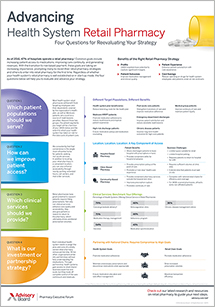Auto logout in seconds.
Continue LogoutA coalition of consumer groups, health insurers, and unions in a letter sent Monday urged CMS to immediately reissue a final rule—that a federal judge put on hold—that would stop dialysis providers from steering Medicaid- and Medicare-eligible patients with end-stage renal disease (ESRD) into individual market plans.
Just updated: Your cheat sheets for understanding health care's legal landscape
Background
CMS in December 2016 issued a final rule to address concerns that some dialysis facilities were steering Medicare-eligible patients with ESRD into individual market plans, which typically reimburse providers at higher rates than government health plans.
Among other things, the final rule would have required that if a dialysis facility—either directly or through a third party—is paying the premiums for a patient's individual health plan, the facility must inform the insurer that the facility or a third party will be making the payments. The final rule also would have required the facility to receive confirmation from the insurer that it would accept the payments throughout the duration of the plan year.
However, a group of dialysis providers—including DaVita and Fresenius Medical Care North America, a subsidiary of a German company—in January 2017 filed a lawsuit seeking an emergency injunction against the rule, arguing that CMS had moved too quickly on the rule and that it could harm patients.
A district court judge granted the providers' request for the injunction, stating the plaintiffs had demonstrated that CMS "likely violated the procedures" for issuing federal regulations.
Groups ask CMS to reissue final rule
The groups in the letter asked HHS Secretary Alex Azar to direct CMS to reissue the final rule, expressing concerns that dialysis providers are "gaming" the Affordable Care Act's guaranteed issue rules—which allow the providers to help patients pay their premiums if they are enrolled in exchange coverage—to generate higher profits. For instance, the groups wrote, "JP Morgan estimated that the return on 'charitable' donations by dialysis providers to the American Kidney Fund (AKF) likely exceeds 500%."
The groups wrote that dialysis providers offer the financial assistance to patients who are eligible for Medicaid and Medicare because the providers receive higher reimbursements from private insurers than they do from the federal government. "What may appear to be innocent assistance to a patient, may in fact be an effort to change that individual's coverage and caregiving in a way that benefits the third party or others, and not the patient," the groups wrote.
The groups continued, "When third parties with conflicts of interest and who gain financially intervene in the provision of health insurance benefits in a manner that changes the financial balance inherent in the relationship between payers and plan beneficiaries, to the detriment of the health care system, the results can be adverse for the individual being assisted, for other plan beneficiaries, and for the sustainability of commercial health plans as a whole."
The groups that signed the letter were:
- America's Health Insurance Plans;
- Blue Cross Blue Shield Association;
- Corporate Health Care Coalition;
- ERISA Industry Committee;
- Families USA;
- National Alliance of Healthcare Purchaser Coalitions;
- National Association of Health Underwriters;
- National Association of Wholesaler-Distributors;
- National Partnership for Women & Families;
- National Retail Federation;
- Outdoor Amusement Business Association;
- Pacific Business Group on Health;
- Service Employees International Union;
- Society of Professional Benefit Administrators; and
- The Auto Care Association.
AKF pushes back
AKF President and CEO LaVarne Burton said the letter represents a longstanding and coordinated effort to discriminate against ESRD patients. "The real steering playbook is outlined in today's letter spearheaded by insurers, employers, and labor unions: let's get these people off employer-provided insurance and let's push them onto the government rolls whether that works for them or not," Burton said (Commins, HealthLeaders Media, 4/17; Baker, "Vitals," Axios, 4/17; Diamond, "Pulse," Politico, 4/17; AHIP et al. letter, 4/16).
Just updated: Your cheat sheets for understanding health care's legal landscape
To help you keep up with the ever-changing regulatory environment, we recently updated our cheat sheets on some of the most important—and complicated—legal landmarks to include a brand new one-pager on the new tax law.
Check out the cheat sheets now for everything you need to know about MACRA, the Affordable Care Act, antitrust laws, fraud and abuse prevention measures, HIPAA, and the two-midnight rule.
Don't miss out on the latest Advisory Board insights
Create your free account to access 1 resource, including the latest research and webinars.
Want access without creating an account?
You have 1 free members-only resource remaining this month.
1 free members-only resources remaining
1 free members-only resources remaining
You've reached your limit of free insights
Become a member to access all of Advisory Board's resources, events, and experts
Never miss out on the latest innovative health care content tailored to you.
Benefits include:
You've reached your limit of free insights
Become a member to access all of Advisory Board's resources, events, and experts
Never miss out on the latest innovative health care content tailored to you.
Benefits include:
This content is available through your Curated Research partnership with Advisory Board. Click on ‘view this resource’ to read the full piece
Email ask@advisory.com to learn more
Click on ‘Become a Member’ to learn about the benefits of a Full-Access partnership with Advisory Board
Never miss out on the latest innovative health care content tailored to you.
Benefits Include:
This is for members only. Learn more.
Click on ‘Become a Member’ to learn about the benefits of a Full-Access partnership with Advisory Board
Never miss out on the latest innovative health care content tailored to you.

